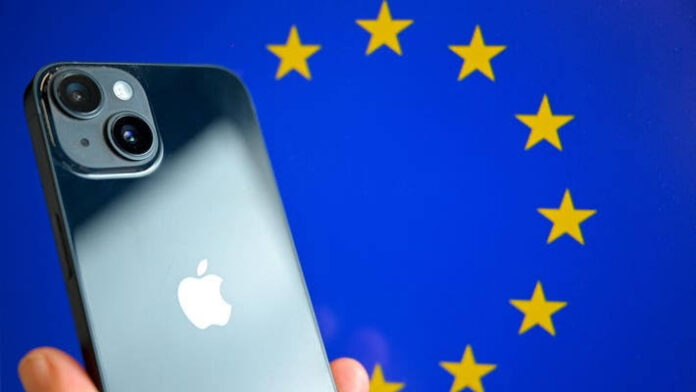Apple has been told by Europe’s highest court to pay Ireland €13 billion in unpaid taxes, bringing an eight-year legal battle to a close. The European Commission, which is the EU’s executive branch, accused Ireland of giving Apple illegal tax benefits in 2016. While Ireland consistently opposed the need for Apple to pay the tax, it has now agreed to respect the court’s final decision.

Apple expressed disappointment with the ruling, accusing the European Commission of trying to change the tax rules retroactively. Apple maintained that it always pays the taxes it owes, and this case was not about how much tax they pay, but which government should receive it. The company argued that it has already paid taxes on the income in question in the United States, as required by international tax law.
This ruling also concluded a separate case involving Google. The court ordered Google to pay a €2.4 billion fine for abusing its market dominance with its shopping comparison service. Google had been appealing the fine, originally imposed by the European Commission in 2017.
The EU’s competition chief, Margrethe Vestager, welcomed both rulings, describing them as victories for European citizens and tax justice. The Apple case revolved around tax arrangements between 1991 and 2014, where two of Apple’s Irish subsidiaries were granted tax benefits that were not available to other companies. These arrangements were deemed illegal by the European Commission, which viewed them as unfair state aid.
The lower court of the European Court of Justice (ECJ) initially overturned this decision in 2020, following an appeal by Ireland. However, the higher court has now reversed that decision, citing legal errors in the lower court’s ruling.
The decision means Ireland must recover the lost taxes from Apple, despite the Irish government’s longstanding opposition. Ireland has argued that allowing Apple to keep the tax benefits was worth it to attract large companies to the country, which has one of the lowest corporate tax rates in the EU. Although the EU does not control corporate tax rates, it does regulate state aid and argued that Ireland’s low tax rate for Apple amounted to an unfair subsidy.
The Irish government has acknowledged the court’s ruling and stated that the issue is now of “historical relevance.” It confirmed that the process of transferring the taxes owed by Apple to Ireland would now begin.
Tove Maria Ryding, from the European Network on Debt and Development, welcomed the ruling but highlighted that the problem extends beyond Apple. She described the case as a “perfect illustration” of the chaotic nature of the current corporate tax system and called for a fundamental reform to create a fairer, more transparent, and predictable tax system.
This ruling is a significant victory for the European Commission in its efforts to prevent large corporations from exploiting tax loopholes. It also reinforces the EU’s stance on regulating state aid and ensuring fair competition within the single market.
In addition to Apple’s case, the decision against Google highlights the EU’s ongoing efforts to curb the market dominance of tech giants. Google had initially complied with the 2017 decision by making changes to its shopping comparison service but remained disappointed with the court’s final ruling.




